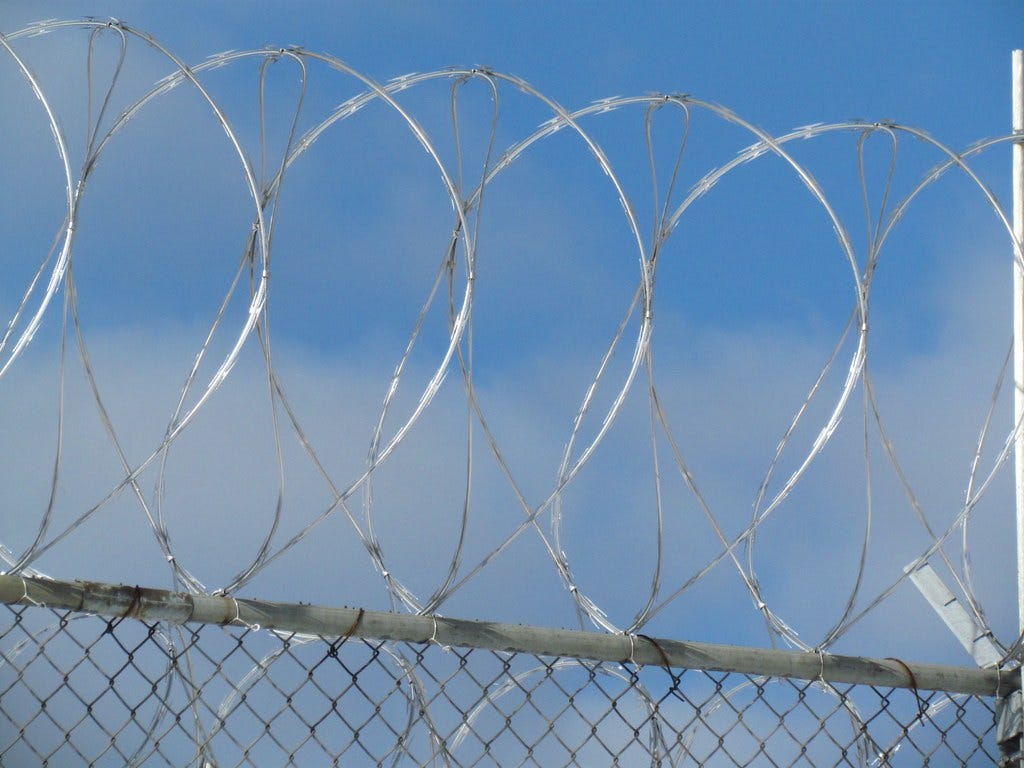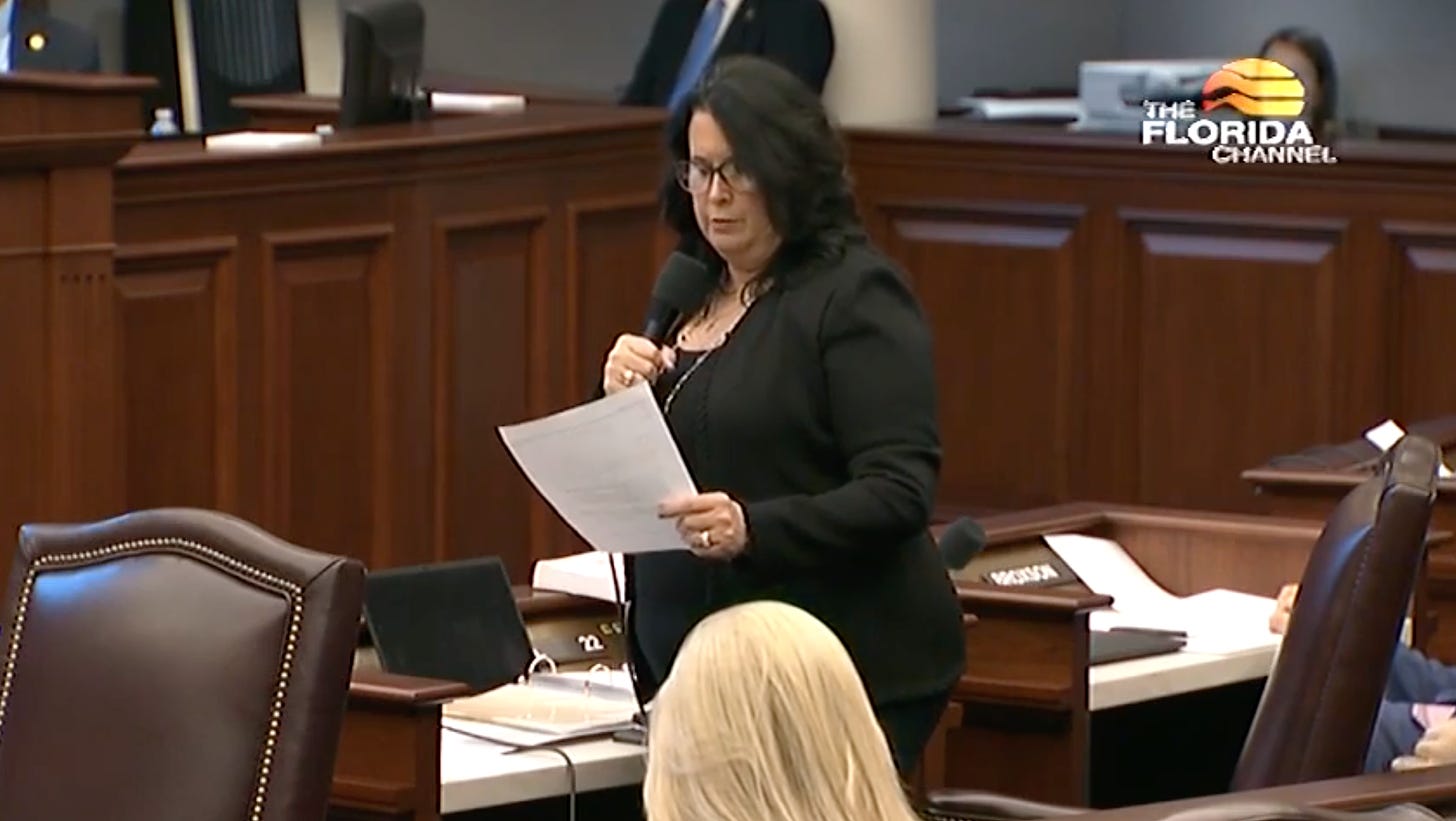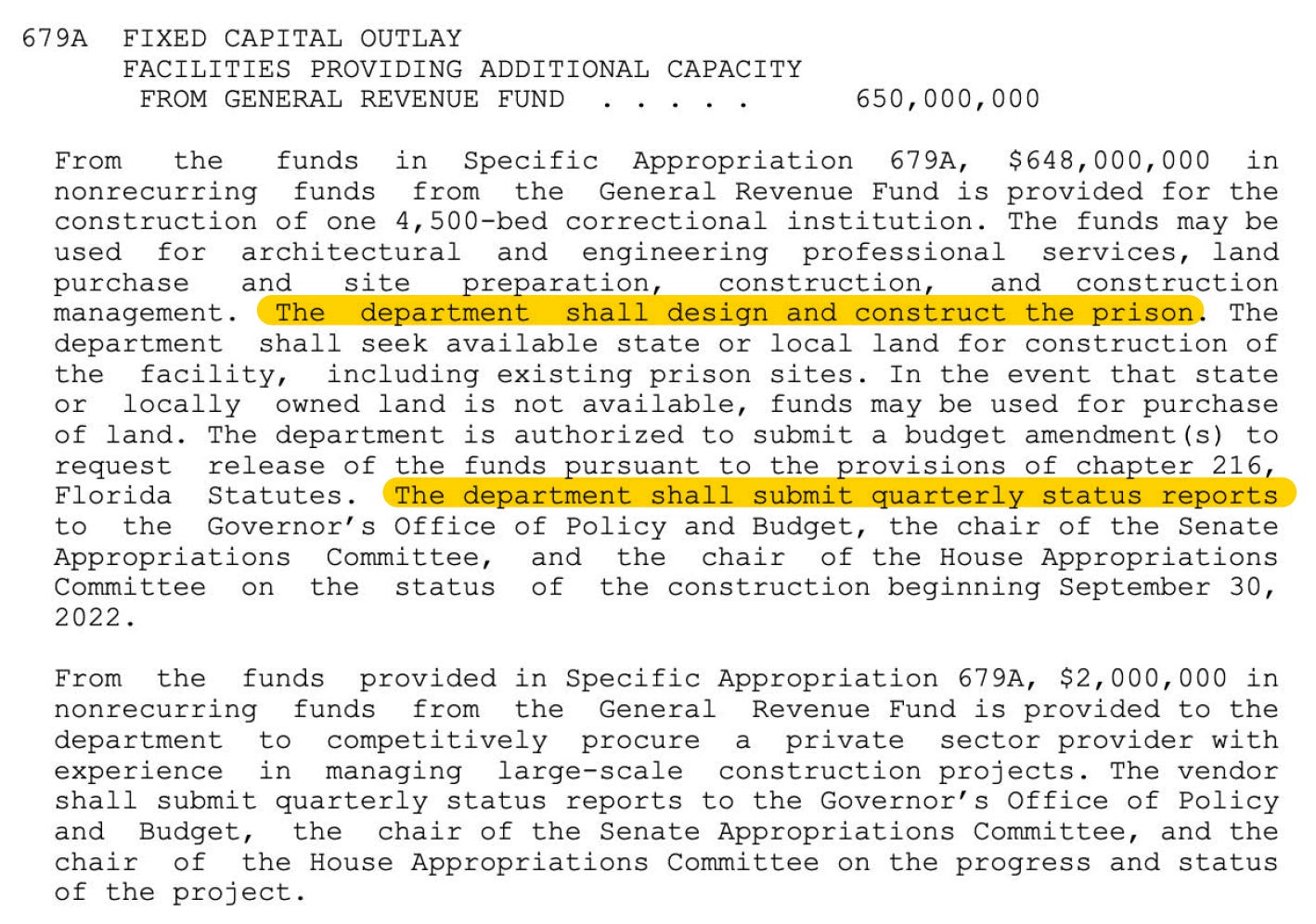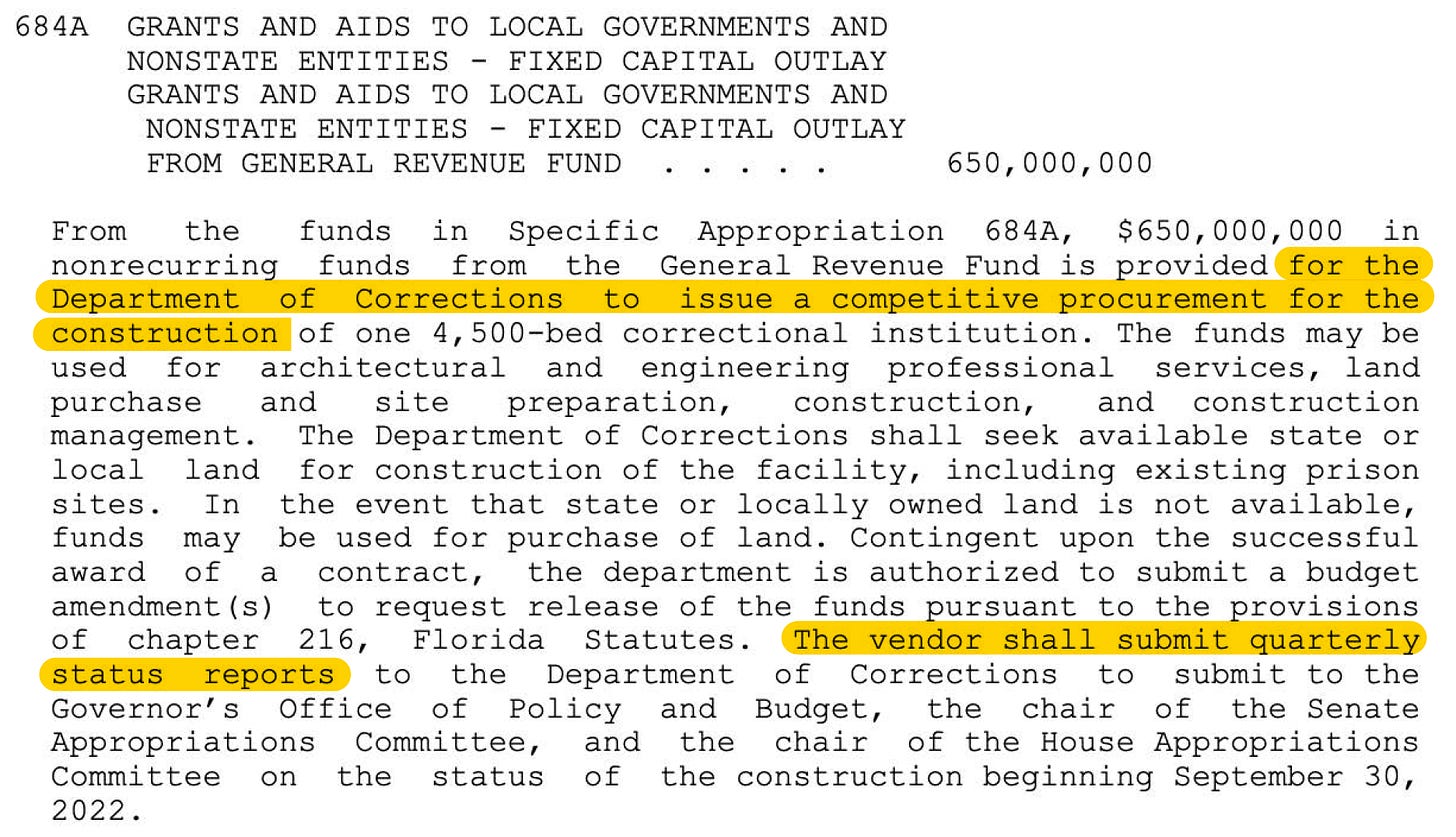Private prison investors love the Florida Senate's budget
Senate leaders, who got $200,000 from private-prison contractor GEO Group just before session, want to build two big new prisons – one of which may be privatized.

This is Seeking Rents, a newsletter devoted to producing original journalism — and lifting up the journalism of others — that examines the many ways that businesses influence public policy across Florida, written by Jason Garcia.
On Jan. 10, just 24 hours before the Florida Legislature opened its 2022 session, the private-prison contractor GEO Group and its executive chairman gave a combined $200,000 to a political committee controlled by the two top budget-writers in the Florida Senate: Senate President Wilton Simpson and Appropriations Chair Kelli Stargel.
Six weeks later, the Florida Senate is pushing to spend $1.3 billion building a pair of 4,500-bed prisons – and GEO executives and investors appear thrilled.
“In Florida, the state legislature is considering the construction of two new, 4,500-bed correctional facilities as part of its correctional modernization program,” James Black, a GEO senior vice president, announced during a company earnings call last week.
That got the attention of investment analysts who follow Boca Raton-based GEO, the nation’s biggest private prison company, which turned a nearly $80 million profit last year.
“Do you [know]...how big the opportunity in Florida is?” asked Kirk Ludtke, an analyst with Imperial Capital.
“Well, the discussion presently is for 4,500-bed facilities,” responded GEO Executive Chairman George Zoley.
“Wow. Ok. Sizable,” Ludtke said.
Senate leaders have so far been circumspect about whether they expect to privatize one of these new prisons.
“That has not been predetermined,” Sen. Keith Perry, a Republican from Alachua County who oversees the Department of Corrections budget for the Senate, said in response to a question from a Democratic senator. (Hat tip to the Miami Herald’s Ana Ceballos.) “But I can pretty much assure you that we know that the first one that we build will be owned and operated by the Department of Corrections. The second one may be owned and operated by the Department of Corrections. We’re still working the details and going through that process.”
But there may be a clue in the fine print of the Senate’s budget.
The Senate has set aside $650 million each for the two new prisons. But the money is separated into two different line items – each with different instructions.
One explicitly says that the state’s Department of Corrections will build the prison itself:
But the other orders the agency to contract with a “vendor” to build the prison:
Now, turning prison construction over to a private contractor doesn’t definitively mean that the facility will ultimately be owned or operated by a private contractor. It often ends up that way, though.
GEO, for instance, has a construction division. It’s small – only about 1 percent of the company’s roughly $2 billion annual revenue. But when GEO builds a prison, it generally ends up running it.
“Our Facility Construction & Design segment primarily contracts with various states, local and federal agencies, as well as international agencies, for the design and construction of facilities for which we generally have been, or expect to be, awarded management contracts,” the company says in filings for investors.
And the stock analysts who follow the follow company sure seem to think the Florida Senate’s budget is great news for GEO.
In a note to investors following GEO’s earnings call, Joe Gomes, an analyst at Noble Capital Management, cited the Florida prison-building plans (along with similar plans in Georgia and Hawaii) as reasons for optimism in GEO’s stock price.
“The new opportunities should bode well for GEO,” Gomes wrote.
Or, as Wedbush analyst Henry Coffey put it: “More beds = more business.”

These $650 million prisons aren’t yet in the House budget. So they will be among the biggest-ticket items the two chambers will have to negotiate over the next two weeks as they hash out a final state spending plan.
But these new prisons are clearly important to Senate leadership. Simpson, a Republican from Pasco County, has been pushing hard for more than a year now to close older, often-dilapidated prisons and consolidate them into a larger, more-modern complexes. And Stargel, a Republican from Lakeland, has emphasized the prison-construction plans in her press statements about the Senate budget.
Senate leaders and GEO executives sometimes sounds like they’re reading from very similar scripts.
Stargel on Feb. 4: “We are also making tremendous investments in our public safety infrastructure by constructing two 4,500-bed prisons and two new prison hospitals. These efficient and state-of-the-art facilities will be safer for both officers and inmates and will allow us to close older, less efficient facilities and save on maintenance and repair dollars.”
GEO’s Black on Feb. 17: “The significant challenges of the COVID 19 pandemic have also highlighted the need for modern facilities to replace older, inefficient prisons that are more costly to operate. Several of our US state and government partners have in recent years pursued initiatives to replace older infrastructure with more modern facilities under public-private partnerships.”
Prison privatization is often one of the most controversial subjects in Tallahassee, drawing intense opposition from across the political spectrum – from progressive criminal-justice reformers to conservative prison guards and law-enforcement unions.
But GEO also takes steps to build its own bipartisan alliances – by steering big campaign contributions to some Democrats, too. For instance, records show GEO gave $15,000 in December to a fundraising committee controlled by Senate Democratic Leader Lauren Book. It was one of the largest donations the Senate Democratic campaign fund received in the three months leading up to session.







Did you miss the other $100k that George Zoley put in Jobs for Florida on the same day?